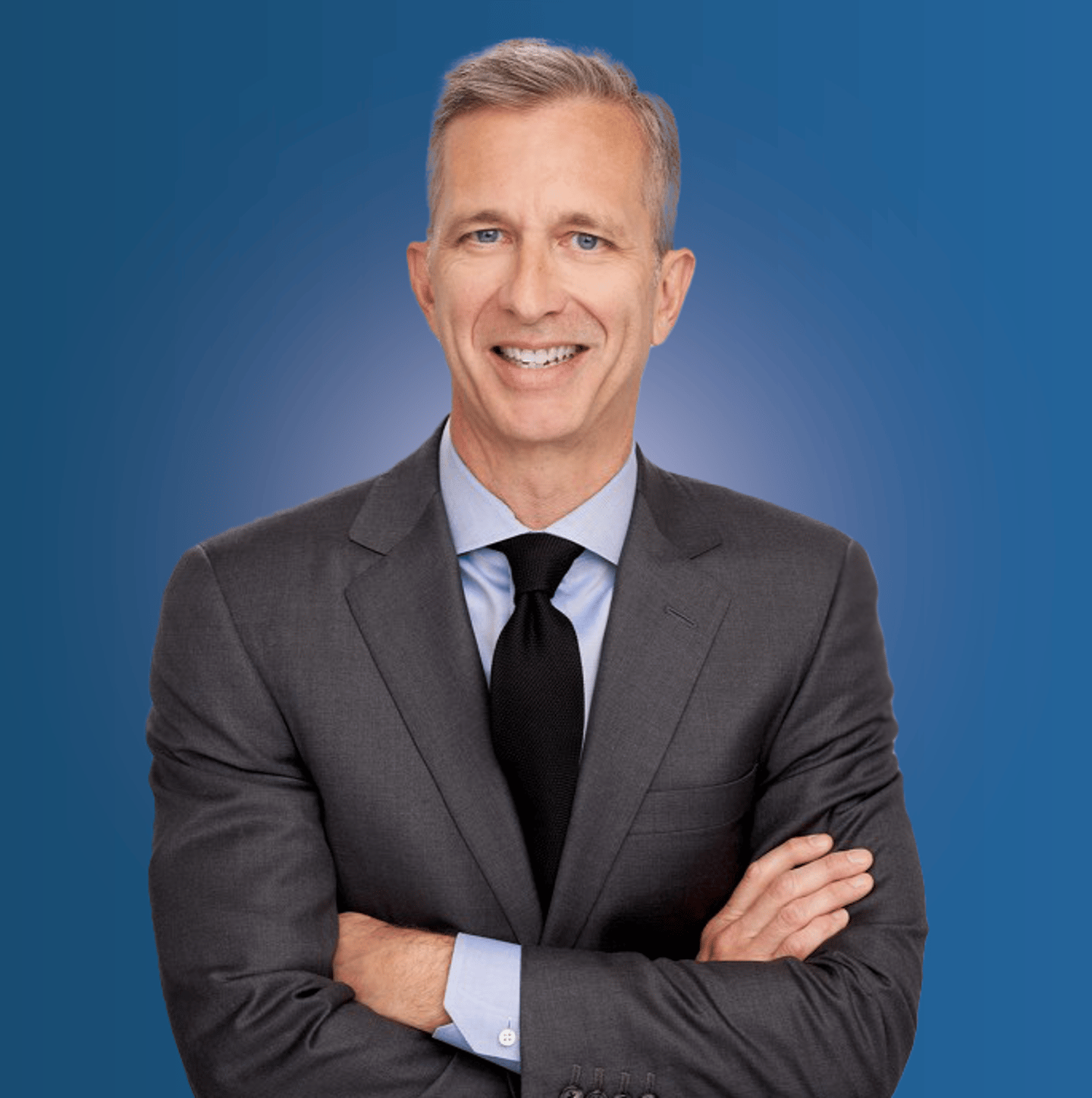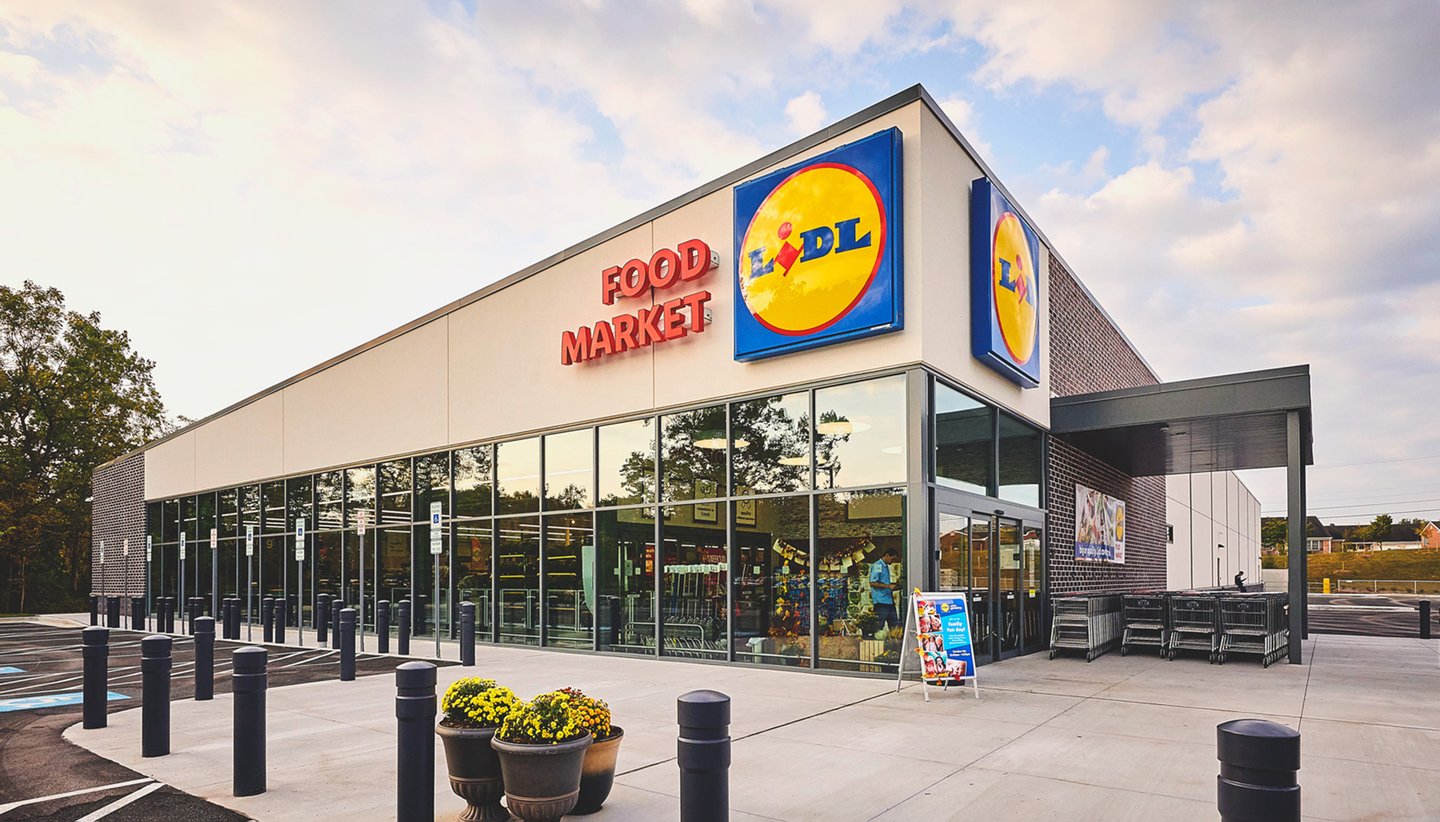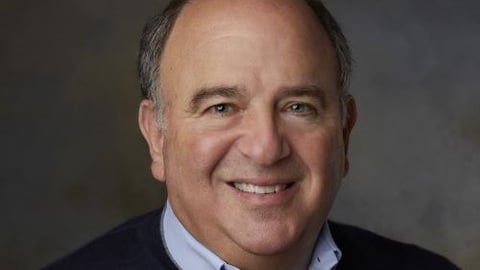EXCLUSIVE: A New Direction for Lidl US, Part 1
Lidl has been in the United States since 2017, but it was somewhat of a bumpy ride until the company eventually hit its stride in this country. Now, however, with a new leader at the helm here, the European limited-assortment store chain is ready to unveil an experience more tailored to the U.S. consumer. To find out more about this new vision, Progressive Grocer talked with Lidl US CEO Joel Rampoldt about the division’s next phase. Part one of the conversation will deal with Rampoldt’s background, what attracted him to Lidl US, the new approach he’s taking and the team he’s put in place, while part two will cover when customers can expect change in the aisles and beyond, as well as lessons that Rampoldt learned from customers and associates that he’s applying to shape his strategy.
Progressive Grocer: Can you provide some information about how you got into the grocery industry and what your previous experience was before your current position?
Joel Rampoldt: Actually, my first job ever, when I was 15, was working in my local Kroger store as a bagger and the courtesy clerk. I did that for a while, through high school. Then, after business school, I ended up in management consulting, where I was adviser to a lot of different retail companies, but mostly grocery companies. I spent a little over 20 years advising CEOs and boards and executives of grocery companies here in the U.S. and in Europe as well.
A little over six months ago, because I’ve been here six months now, the global CEO of Lidl asked me to take over as CEO of Lidl US, and it was an interesting transition for me. Obviously, I know the industry well, but moving from being an adviser to being an executive for the first time, I’ve been spending the last six months learning a lot, meeting a lot of our store associates, talking to our customers, working in stores, and getting up to speed on the industry and the company.
PG: I read that you are the first American CEO of Lidl US.
JR: That’s true. It’s pretty typical for Lidl to enter a new country with an experienced team who really knows the Lidl way of doing things and really executes the Lidl playbook, but then, over time, to become more of a local player. That includes adapting more to the local market. But it also means, over time, having more of a homegrown management team, and I’m part of that.
PG: What was it about Lidl US that attracted you to the company when you were offered the position and you were considering it?
JR: I just thought the company has tremendous potential, from the outside looking in. I’ve seen the power of the discount format, particularly in Europe, but elsewhere as well, and this idea of a company that is completely focused on giving a customer the best of both quality and price. You don’t have to compromise. You can get the best of both. And that’s only possible if you’re really, really efficient about which products you choose to carry, how you flow goods through your system, buying really well. But if you are efficient enough, you can actually give customers the best of both, and Lidl does that.
I was really excited for the potential for Lidl in the U.S., and when I took the job, I brought a lot of humility to it, obviously because there was a lot that I didn’t know. I spent a lot of time working in stores; last week, I was at one of our stores here [Arlington, Va.], working in the bakery, working in stores in Atlanta, packing up shelves, et cetera, et cetera. And as I’ve worked in the stores and met the store associates and talked to customers, I’m more and more confident that potential that I saw is real.
PG: So, once you became CEO, what was the vision that you laid out for Lidl US, and how is this a departure from how the company has operated previously in the United States?
JR: I tried to come in very neutral. Obviously, anyone who comes into a situation like this, you have preconceived ideas, and I’m no different. I tried hard to put that to the side and just learn and spend the first several months just talking to people, working in stores, understanding how things really worked, figuring out which of my assumptions and presuppositions might’ve been right and which ones weren’t. And where I landed is we have a pretty straightforward three-pronged approach. There are three things that we really need to do. One is to execute a commercial transformation of the business, and by that, I mean making sure we have the right products that appeal to the U.S. customers. ... so that when you walk into our stores, it’s what an American consumer expects to find and will be excited to shop there.
[RELATED: 75th Consumer Expenditures Study]
The second part is a high-performing team, making sure that at every level, we have the best possible people in each role. Everyone has the right incentives and the right opportunities to grow and perform. Bringing in new leaders like I’ve done, new leaders in purchasing and marketing, it’s a big part of that, rolling out development initiatives and development training for our store managers, our district managers.
The third point is on operational efficiency. Globally, our company is very focused on efficiency, and I want to make sure that we [have it] lead us in everything we do, how we buy product, how we flow it, how we stock our shelves. We do everything as efficiently as possible.
You’ve been in our stores I presume? All you need to know about what we prioritize and what we really care about, you can see when you walk in the store, because the first thing you see is fresh – fresh fruits and vegetables. And in that area, actually, we do a really good job. We have a limited assortment, but we have a wide range of products. Not everything you could conceivably buy, but the right products – they’re very fresh, they’re in stock, they’re very high quality, very good price. That’s one of our first focus areas.
Right after that, you probably see our fresh bakery, and we are known for our croissants. My predecessors have talked about how great our croissants are and they are, they’re the best croissants you can buy in the U.S. But when I look at it, I think we’re missing some things that the U.S. consumer expects to find. When you walk into a store like ours, you expect to have great bagels and great doughnuts and great American pastries, in addition to all the things that we have today. So part of the commercial transformation is that, yes, we have great croissants – we’re absolutely going to stand behind that – but we can have great American doughnuts, too, decadent American doughnuts, larger, richer doughnuts that the American consumer expects. And we’ve got to have great bagels. You’ll see us rolling those things out soon.
The next thing you see in the store is probably the fresh protein area. And that’s an area where we’re going to be making a lot of changes. We’re going to be rolling out a new private brand, we’re going to be rolling out new products and new organic grass-fed [options], for example, new packaging, new training for our store associates to make sure that our freshness is always fantastic. So, when I talk about the commercial transformation [of Lidl US], those are the first areas you’re going to see change when you walk into the store. You’ll see those changes over the course of the next couple of months.
PG: You had mentioned that one of Lidl’s overall strategies was to start off a new business or a new division with seasoned executives and then transition to a more homegrown team. I assume that was part of your vision in assembling your executive team, to look for people that had really deep knowledge of the U.S. grocery industry and let them adapt the Lidl experience for the American consumer.
JR: Exactly, and it’s a balance. If you think about the four executives that we announced recently, Miguel Paradela, who is the head of purchasing all of merchandising and marketing here, is a very experienced Lidl executive. He has been an executive at Lidl Spain for decades, and he is an expert in how we buy product and how we flow product. We need that expertise here as well. But Tod Seiling, who’s our new leader of fresh, who leads all of meat, fresh produce, bakery, he's a longtime U.S. grocery industry executive. I’ve worked with him before. He’s an absolute expert. In those categories, he knows all of the suppliers and has great supplier relationships. Frank Kerr, who is an experienced Lidl executive but is an American, is the first ever chief customer officer that Lidl has ever had – again, bringing an American perspective to some key areas. And Michael Chao, who’s our new head of marketing, again, homegrown talent, is an expert on the U.S. consumer, an expert on using technology to connect with consumers.
In those four individuals, you kind of have a microcosm, you’re bringing in the expertise of the U.S. market, making sure we have expertise, productivity, because we’re one of the largest grocers in the world. Being able to leverage that scale is critical for how we deliver for our consumers, bringing those things together.
PG: It sounds like the best of both worlds.
JR: That’s the hope.
CLICK HERE for part two of PG’s conversation with Joel Rampoldt.








